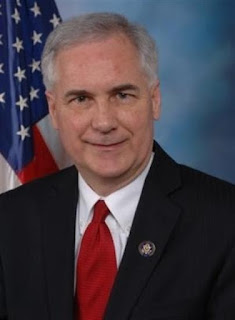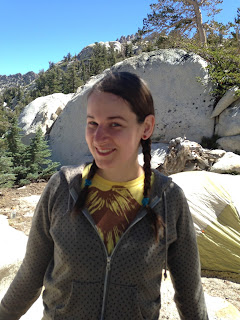There's nothing like an ambulance ride to make you glad that you have health insurance.
The patient was my then-eleven-year-old son Zac. The occasion was his ruptured appendix. The setting was an October morning in Fresno, California. The backstory is that we had been in and out of doctor's offices and labs for two days. Until just a few minutes ago, nobody in a white coat could be convinced anything was wrong.
 |
| Zac on the ambulance |
Our small-town pediatrician is wonderful; it's just that she had never seen an appendix case quite like Zac's. His pain didn't stray much below the latitude of his belly button, and was milder on the right side. On a scale of 1 to 10, he gave it a 3. He smiled and told jokes, and at the end of our appointment, jumped down from the examining table.
Because our pediatrician is wonderful, she didn't dismiss our concerns. She told us her hunch was constipation, but instructed us to call her if his pain worsened, or settled in his lower abdomen, and she would order a CT scan. For the time being, she prescribed MiroLax.
The next day, Zac was indeed worse, and our pediatrician was out of the office. Now, our tribulations began in earnest. We drove the hour to Fresno, where a nurse practitioner belittled my fears, repeatedly telling Zac, "You're not an appy!" The culprit was nothing more than constipation, she said, but to appease me, she would order an X-ray and some labs. Frustrated, I told her that Zac's doctor had recommended a CT scan as the next step. She pooh-poohed the lot of us. "I don't think there's anything wrong with him," she said, "but you seem to think so." She prescribed milk of magnesia.
I was seething as Zac underwent his X-ray. X-rays were for broken bones, not appendicitis. Stupid nurse practitioner. Stupid Kaiser. Stupid me for not advocating harder for my son while we were sitting there with her in her stupid office. Driving home, my eyes smarted. Zac slept in the passenger seat. In the backseat, hunched in a stupid small pile, were the overnight things I'd packed just in case.
Late that evening, I received Zac's lab results by email. His white blood cell count was too high. I was scared. Nurse #1 on Kaiser's 24-hour advice line was not. She told me that I would have received a phone call by now if it were an emergency. She wished me a pleasant evening.
Enter my boyfriend, Taylor. He proclaimed Nurse #1 to be full of shit, and urged me to call back and talk to someone else. By this point I was exhausted and apathetic. I just wanted to believe Nurse #1, but to keep the peace with Taylor, I redialed the hotline. This time I got Nurse #2, who told us to go straight to the ER.
The ambulance ride came eight hours later, after an ultrasound, an MRI, and a lot of waiting around in between. It was just two highway exits between the Kaiser ER and Valley Children's Hospital, an easy drive, but the ER doctor didn't want to take chances with a burst appendix. We finally got the emergency I'd been anticipating, flashing lights and all.
 |
| Zac the morning after surgery |
Although, at the time, nothing about Zac's medical emergency seemed luxurious, I now look back at the experience and recognize how fortunate we were. All I had to worry about, in the six days between our first doctor's appointment and Zac's release from Valley Children's Hospital, was my son's health. My employer asked nothing of me; I was able to park myself at Zac's bedside, in a cozy private room equipped with a pull-out couch for parents, and give him my undivided attention. Nobody hounded me about money, and I didn't think much about it at the time. Zac had insurance, and it was a "good" plan I had purchased for him myself, outside of my employer's expensive group offerings.
Some financial woes did surface later, after I realized that Zac's "good" plan was centered more on outpatient care, and carried a 30% price tag for all hospital-related expenses. Instead of just covering Zac's $1,250 deductible, as I had optimistically assumed during my hospital vigil, I ended up owing $6,250, the full annual out-of-pocket maximum. But it worked out. I was able to pay the bills off in a year, and, for only a few more dollars a month, switched Zac to a better "good" plan.
At previous points in my life, a medical emergency would have been catastrophic. Although Zac has always had some form of coverage--the Children's Health Insurance Program when his dad and I were together, Medicaid when I was a divorced, impoverished graduate student, and private health insurance for the past seven years of steady paychecks--I have frequently been uninsured. As luck would have it, I never got sick, and I had Planned Parenthood for annual exams and birth control. But it was American roulette, and nobody can deny there was a bullet in the chamber.
Here in the United States, it feels like good fortune that I paid $6,250 for Zac's ruptured appendix, rather than the full $30,000-plus that lurked in the invoice margins. Here in the United States, it feels like good fortune that Zac had insurance at all. Here in the United States, it feels like good fortune that my employer was understanding, and that I was able to flex my time around to avoid depleting my supply of paid-time-off hours.
Here in the United States, we exist in a vacuum. Geographically isolated and fed a steady diet of corporate-backed spin, we have no concept of how things are done in the civilized world.
 |
| Zac back to his normal goofy self the morning of his release from the hospital |
As the new regime works to fell the Affordable Care Act, our nation's first baby step toward healthcare for all, there is good news in California. It's Senate Bill (SB) 562, the Healthy California Act. SB 562 would provide single-payer healthcare to all Californians. Funded through a combination of federal dollars and state tax revenues, Healthy California would cut insurance companies out of the picture, directly paying for all "medically appropriate" services. The list spans everything you can think of: inpatient and outpatient care, prescriptions, mental health, alcohol and drug rehab, hospice, dental, vision, acupuncture, and more. Although Californians may see a tax increase, they will never see a premium, deductible, or copay. Healthcare will be, for all intents and purposes, free. It will be as it should be in the modern era, a basic human right.
SB 562 isn't there yet, but it's on its way. Having passed the Senate Health Committee in late April, the bill is now being considered by Senate Appropriations. It will next go to the Senate floor for a full vote, ideally followed by the Assembly. Clearing both of those hurdles, it will reach the governor's desk, where we can only hope it will be signed into law. Nothing is guaranteed, however, and there are opportunities for action at each of these way stations. In the coming days, my state legislators, Tom Berryhill and Frank Bigelow, will be hearing from me on the importance of the Healthy California Act for my family, and for 39 million of my neighbors.
While Zac was in surgery, the misguided nurse practitioner tried to call me. I didn't recognize the number, and was too nervous at the time to even think of picking up the phone for a stranger. I let it go to voicemail. Her message wasn't exactly apologetic, but she certainly sounded concerned. She asked me to call her back. I didn't, not ever. I don't hold any grudges against the woman. But her behavior, and what followed, have attuned me to what really matters in healthcare--being heard. When we have the ear, and the understanding, of our healthcare providers, and when we are not worried about how we are going to pay the bills, we can focus on our role: getting well, and staying well.




















